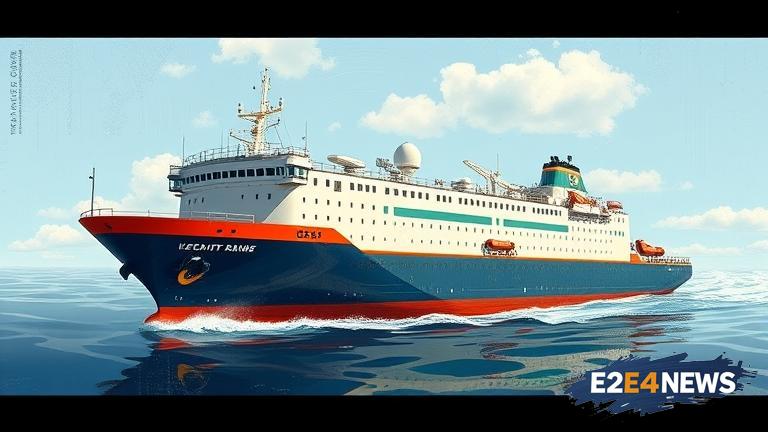In a groundbreaking move, CSSC has transformed a decades-old bulk carrier into a cutting-edge aquaculture vessel, designed to support the growing demand for sustainable seafood production. The conversion process, which took several months to complete, involved a thorough overhaul of the ship’s infrastructure, including the installation of advanced aquaculture systems and equipment. The new vessel is equipped with state-of-the-art technology, enabling it to cultivate a wide range of marine species, from fish and shellfish to algae and other aquatic organisms. This innovative project demonstrates CSSC’s commitment to reducing its environmental footprint and promoting eco-friendly practices in the maritime industry. The conversion of the bulk carrier into an aquaculture vessel is expected to have a positive impact on the marine ecosystem, as it will help to reduce the pressure on wild fish populations and promote more sustainable fishing practices. Furthermore, the vessel’s advanced systems will enable it to monitor and mitigate the environmental effects of aquaculture, such as water pollution and habitat destruction. The project has also created new job opportunities in the aquaculture sector, both on board the vessel and in related industries, such as fish processing and marketing. CSSC’s innovative approach to vessel conversion has set a new standard for the industry, demonstrating that with creativity and investment, it is possible to breathe new life into aging ships and reduce waste. The company’s commitment to sustainability has earned it recognition and praise from environmental organizations and industry leaders, who see the project as a model for future initiatives. As the global demand for sustainable seafood continues to grow, CSSC’s aquaculture vessel is poised to play a significant role in meeting this demand, while also promoting environmentally responsible practices. The vessel’s advanced technology and equipment will enable it to produce high-quality seafood products, while minimizing its impact on the marine environment. In addition to its environmental benefits, the project is also expected to have economic benefits, as it will help to support the growth of the aquaculture industry and create new opportunities for trade and investment. The success of this project has also highlighted the importance of collaboration and innovation in the maritime industry, as companies work together to develop new solutions and technologies that can help to address the environmental challenges facing the sector. Overall, CSSC’s conversion of the aging bulk carrier into an aquaculture vessel is a significant achievement that demonstrates the company’s commitment to sustainability and innovation, and sets a new standard for the industry. The project has the potential to make a positive impact on the marine environment, while also supporting the growth of the aquaculture industry and promoting environmentally responsible practices. As the industry continues to evolve and grow, it is likely that we will see more innovative projects like this one, as companies seek to reduce their environmental footprint and promote sustainable practices.
